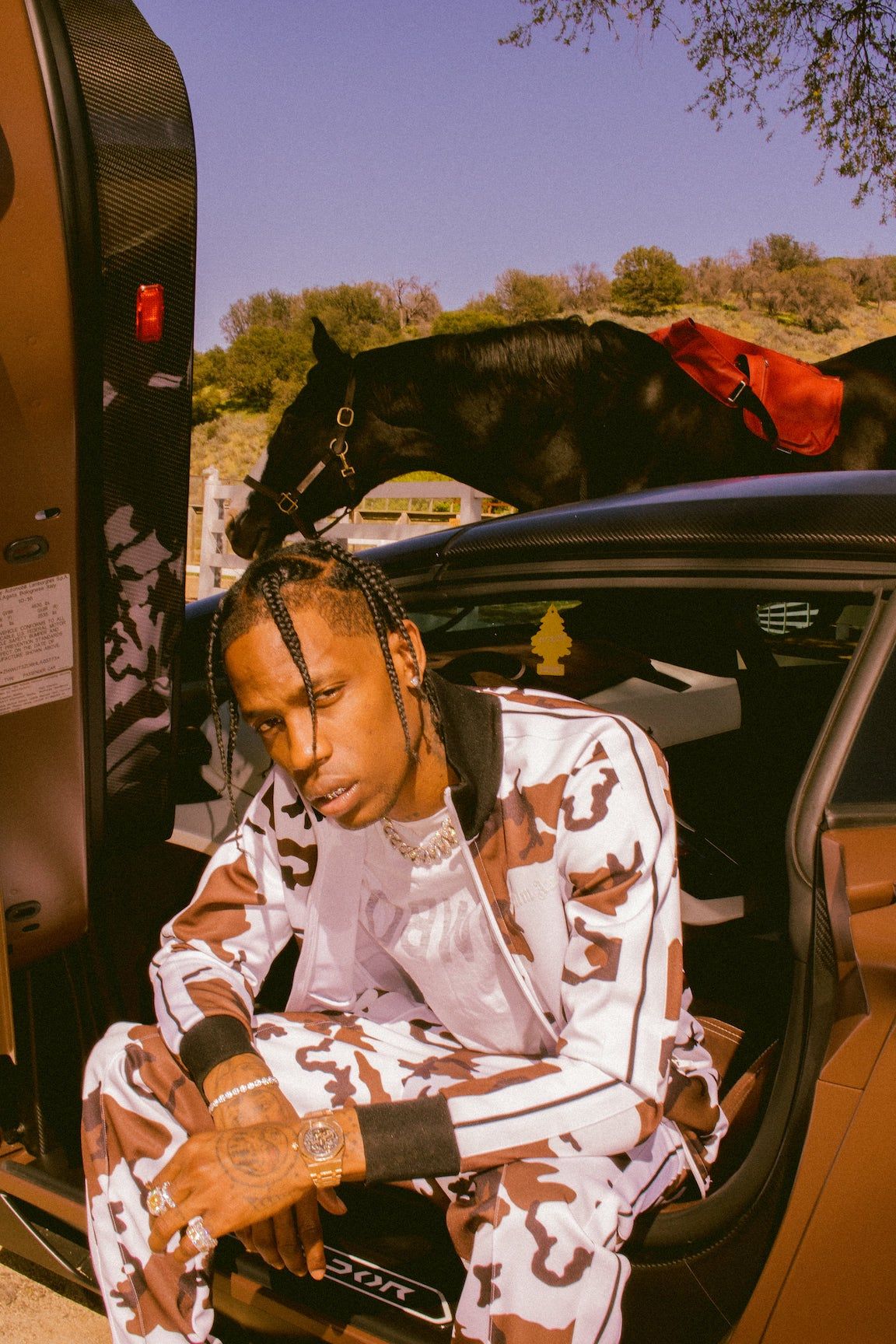FRANK OCEAN: The Artist is Absent
|Alex Needham
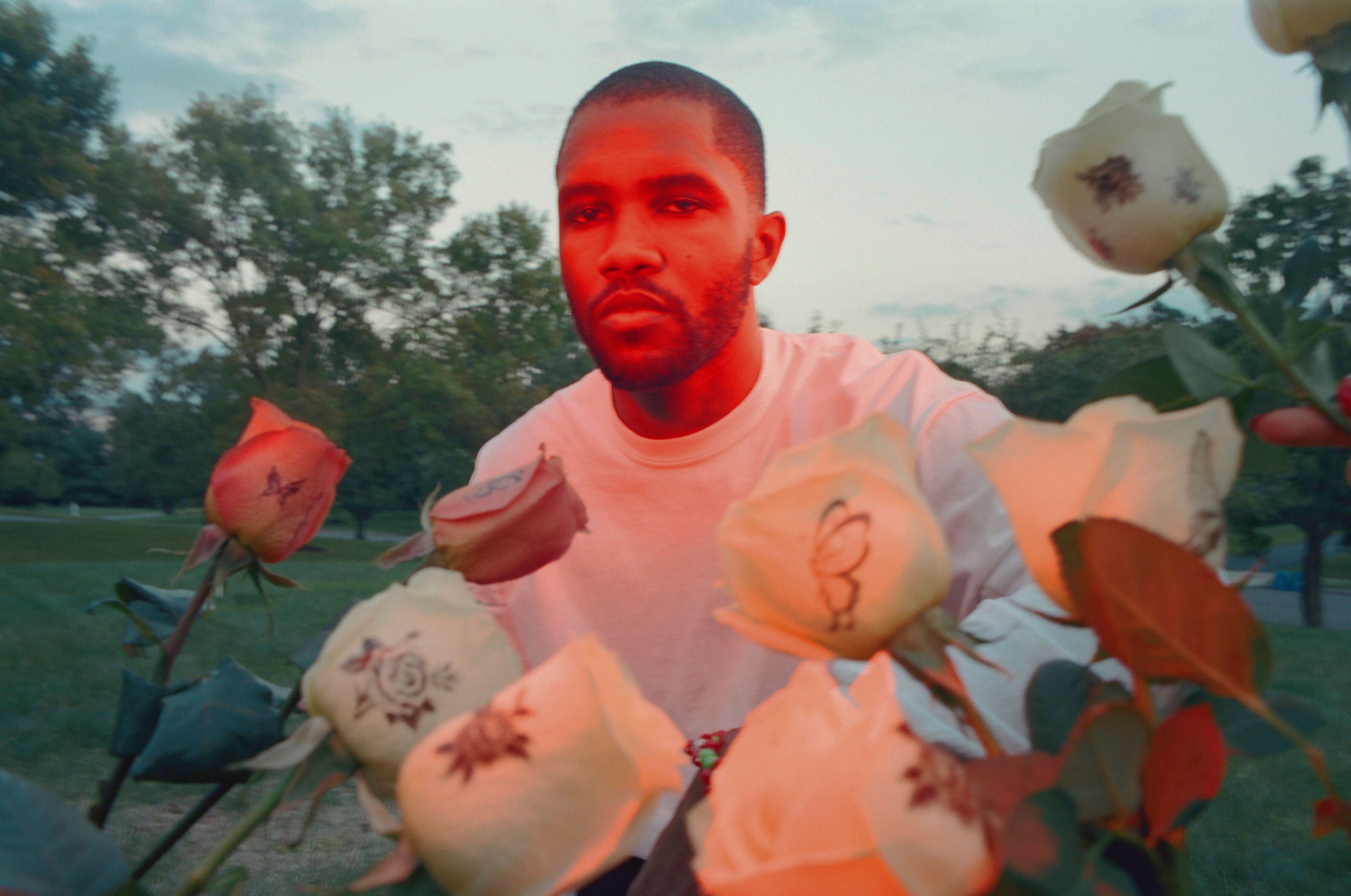
Last month Frank Ocean’s album Blonde was certified platinum, breaking one million units sold in an age when nobody seems to be paying for music. But the psychedelic future soul of Frank Ocean has always been about meaning, not numbers. For 032c Issue 33 (Winter 2017/18), music journalist Alex Needham got to the heart of Blonde in “The Artist is Absent,” a feature accompanied by a photo editorial shot by Petra Collins and styled by Mel Ottenberg. The print edition is still available at our online store.
It starts with an ethereal suspended chord, a wash of sound flooding the listener’s synapses, before a heavenly falsetto announces: “When I feel what I feel …”
When I’m trying to fathom the mysterious depths of Frank Ocean, his version of “(At Your Best) You Are Love” is the song I always return to – a record so stratospherically beautiful that it sounds the way drowning in oxygen must feel. It’s the opener on Endless, the 2016 visual album that finally satisfied the pent-up frustrations of fans who had been waiting years for new music. Endless turned out to be the first of two new albums released in one weekend. The main event, Blonde, followed the following Saturday night, unveiling a new Frank Ocean, whose music was far more abstract and challenging – but also more beautiful – than the one who made his 2012 breakthrough album Channel Orange.

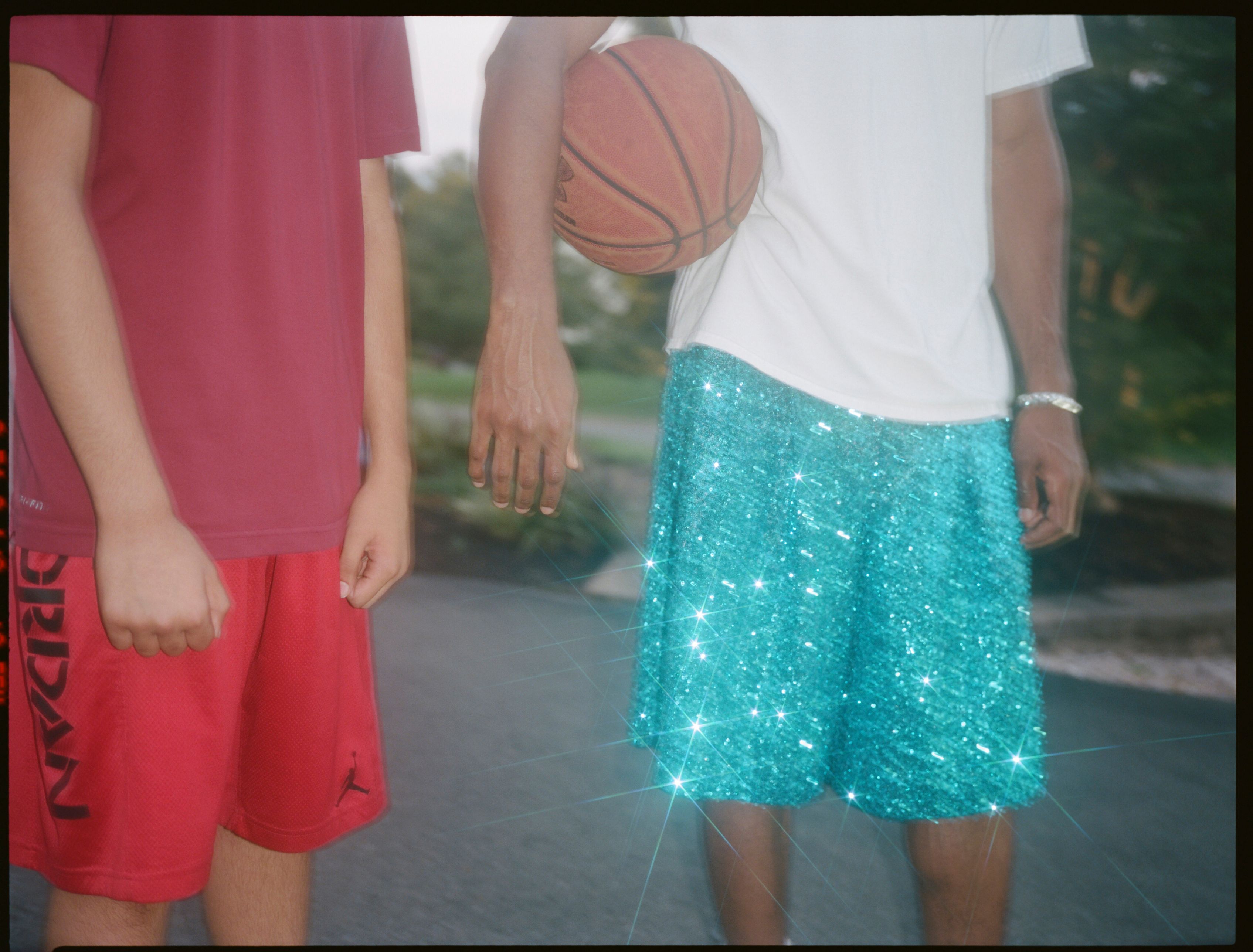
So who was this artist who appeared on the cover of Blonde in the shower with his hair dyed green? Or who unravels in Endless over 45 minutes of swooning soul, ambient interludes, and a seven-minute Wolfgang Tillmans techno track? The video for “Nikes” contained further clues, but where was the real Frank Ocean in this torrent of imagery that included a naked and glittery ass being spanked, a stuntman walking through a parking lot on fire, a devil on a theater balcony, and a rapping dog?
Two hours of music – not to mention a thick magazine, Boys Don’t Cry – was a lot to process all at once. So I went back to the opening song, swathed in strings arranged by Radiohead’s Jonny Greenwood. “(At Your Best) You Are Love” is a cover of a cover. A slightly different version came out before Endless via Ocean’s Tumblr in 2015. It was a tribute to Aaliyah, posted on the eve of what would have been her 36th birthday. Aaliyah had enjoyed a late summer hit with the song – originally performed by The Isley Brothers – in 1994. Her bumping, insouciant take on the tune could not have been more different from Ocean’s weightless swooning. But, nevertheless, his version connected three generations of soul Wunderkinder – visionaries who could travel far out into music’s leftfield and somehow make it pop.
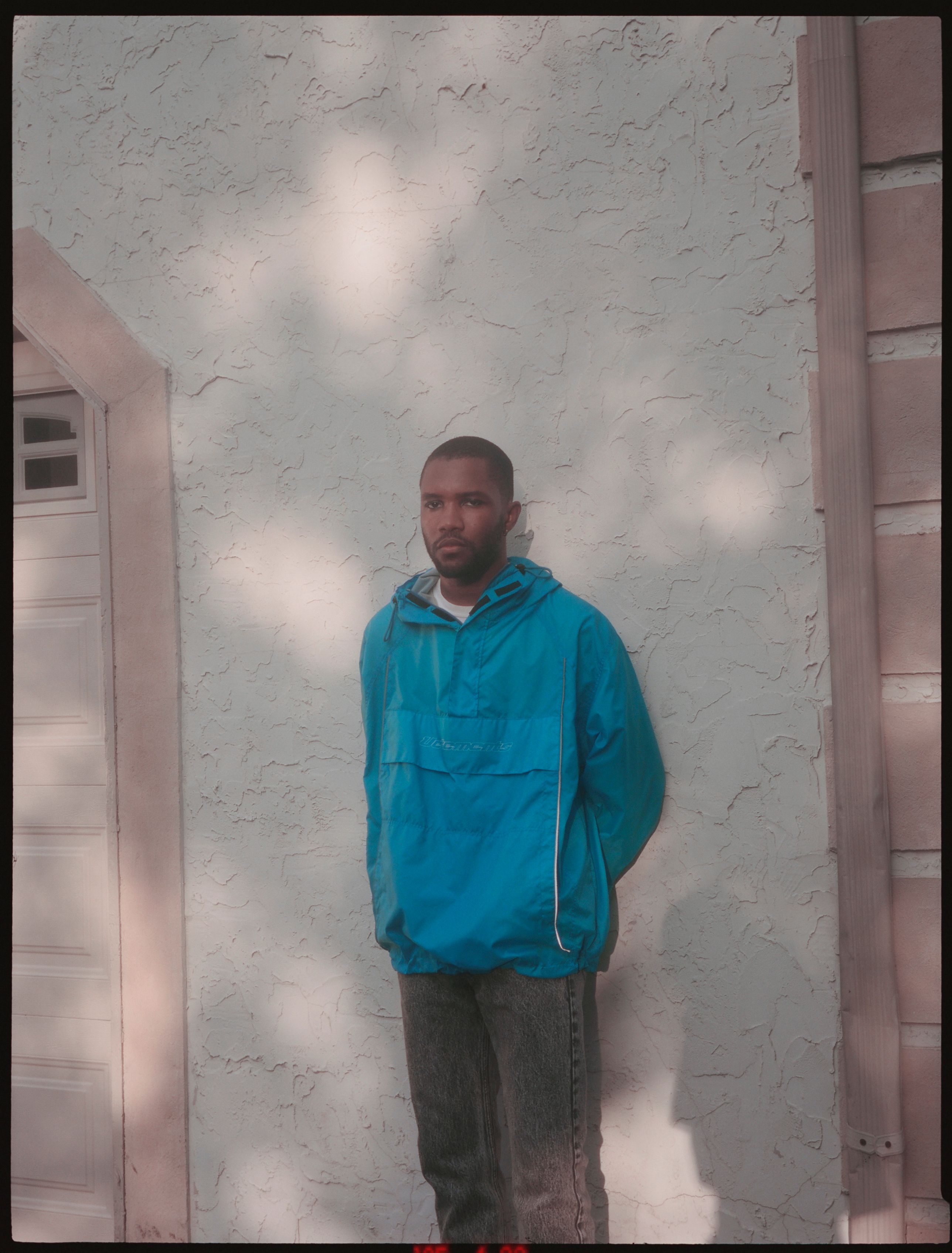
Like Aaliyah’s best songs, Ocean’s music is all about the space it contains – the extent to which it can be stripped down while still remaining stuck in the listener’s consciousness. However, Ocean goes even further than Aaliyah did. She and her producer Timbaland retained the beats, choruses, and conventional song structures, even when they were denuding their landmark records of every other element previously believed to be essential for a pop song.
Beats, verses, and choruses are precisely what Ocean eschews on much of Blonde. Around a third of the tracks have no drums at all, and instead of the huge hooks he provided in jams like “Thinkin Bout You” and “Lost,” the songs on Blonde take a digressive route through Ocean’s often fuzzy consciousness. Twenty-first century pop music demands clarity, immediacy, and obviousness – musicians dare not even write long introductions to their hits, in case fans on streaming sites get bored and flick to another tune. Yet Ocean never got the memo. Some of his most elusive songs can take weeks to sink in, and only after full immersion, without distractions – an audacious thing to demand of the overstimulated modern pop fan.
Furthermore, Ocean largely refuses to explain himself publicly, or demystify his songs. He has done 15 interviews in his whole career. He is hardly ever on television and he does not play live very often either. His Instagram account is long-deleted, and he does not tweet a running commentary as he goes about his day. Instead, he uses Tumblr, which seemed generationally appropriate when he was in his early twenties, but now seems like an intriguing eccentricity in itself.
Some have called Ocean an Afrofuturist, in the lineage of Sun Ra or Drexciya, though Ocean’s lyrics explore inner, rather than outer space – emotional NASA. Blonde, with its optional “e,” stands for a refusal to be pinned down, a space to express oneself freely, regardless of race, gender, age, or sexuality. In a world of cheap self-revelation, intimacy with Ocean must be earned.
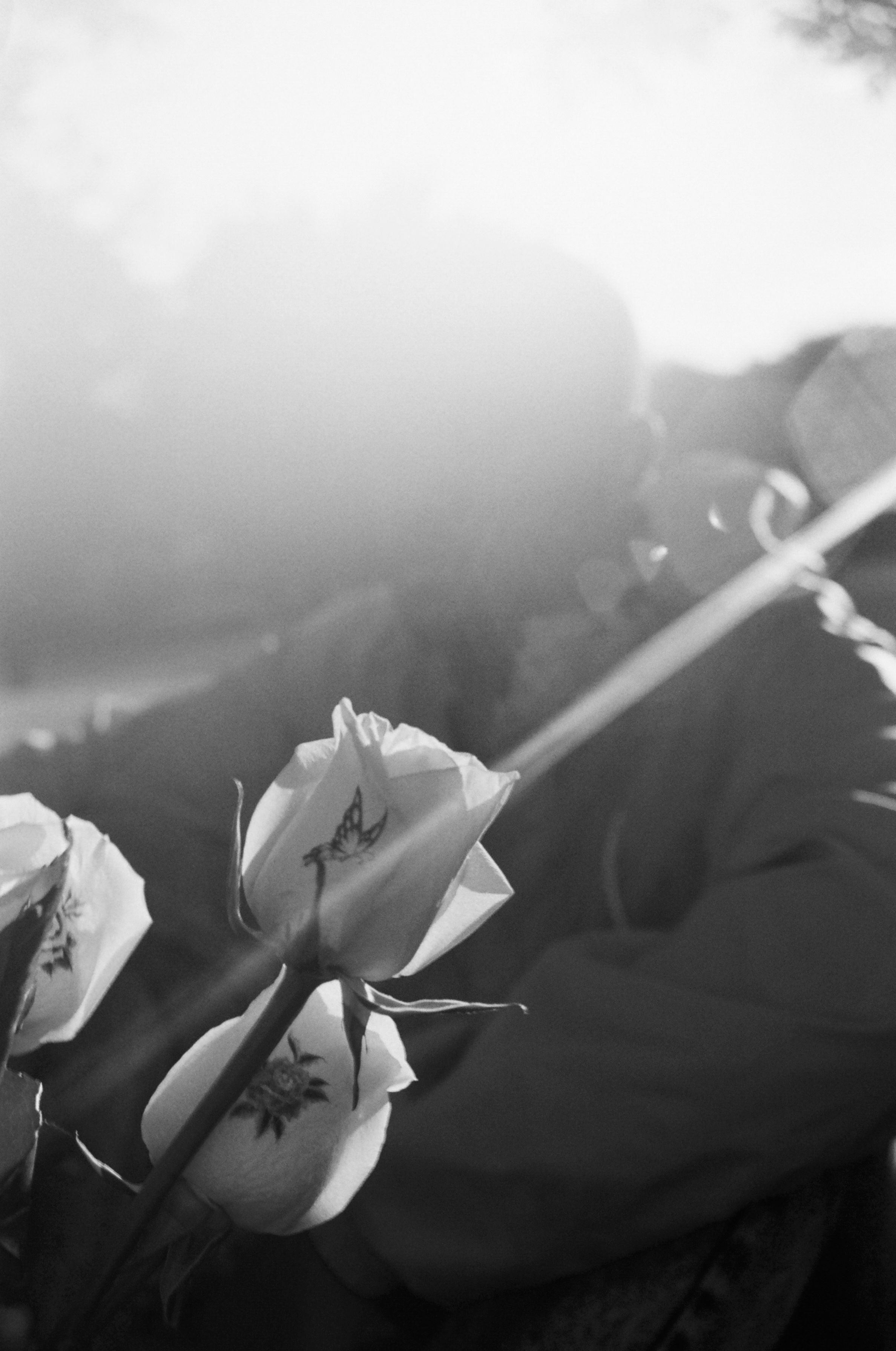
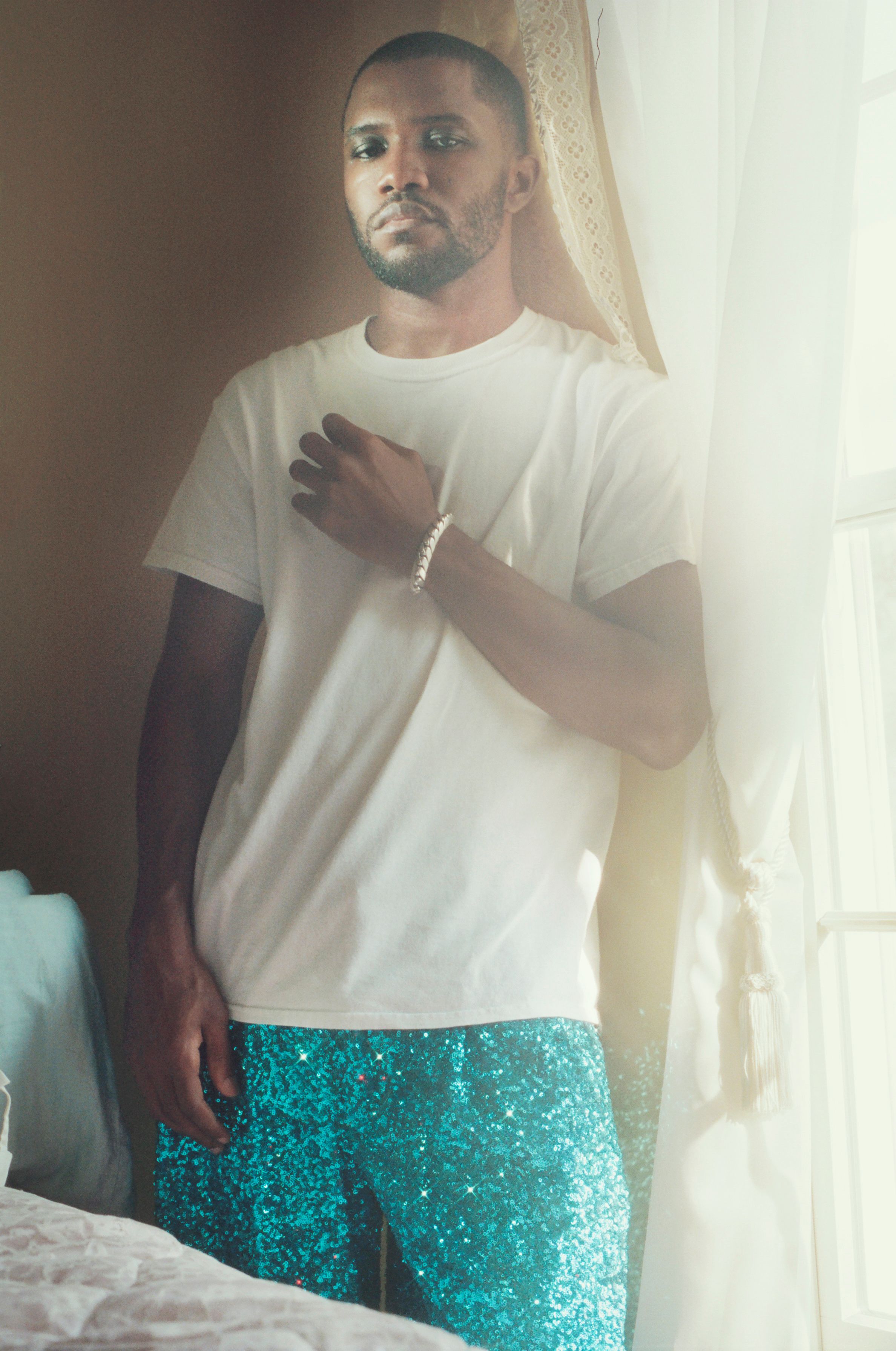
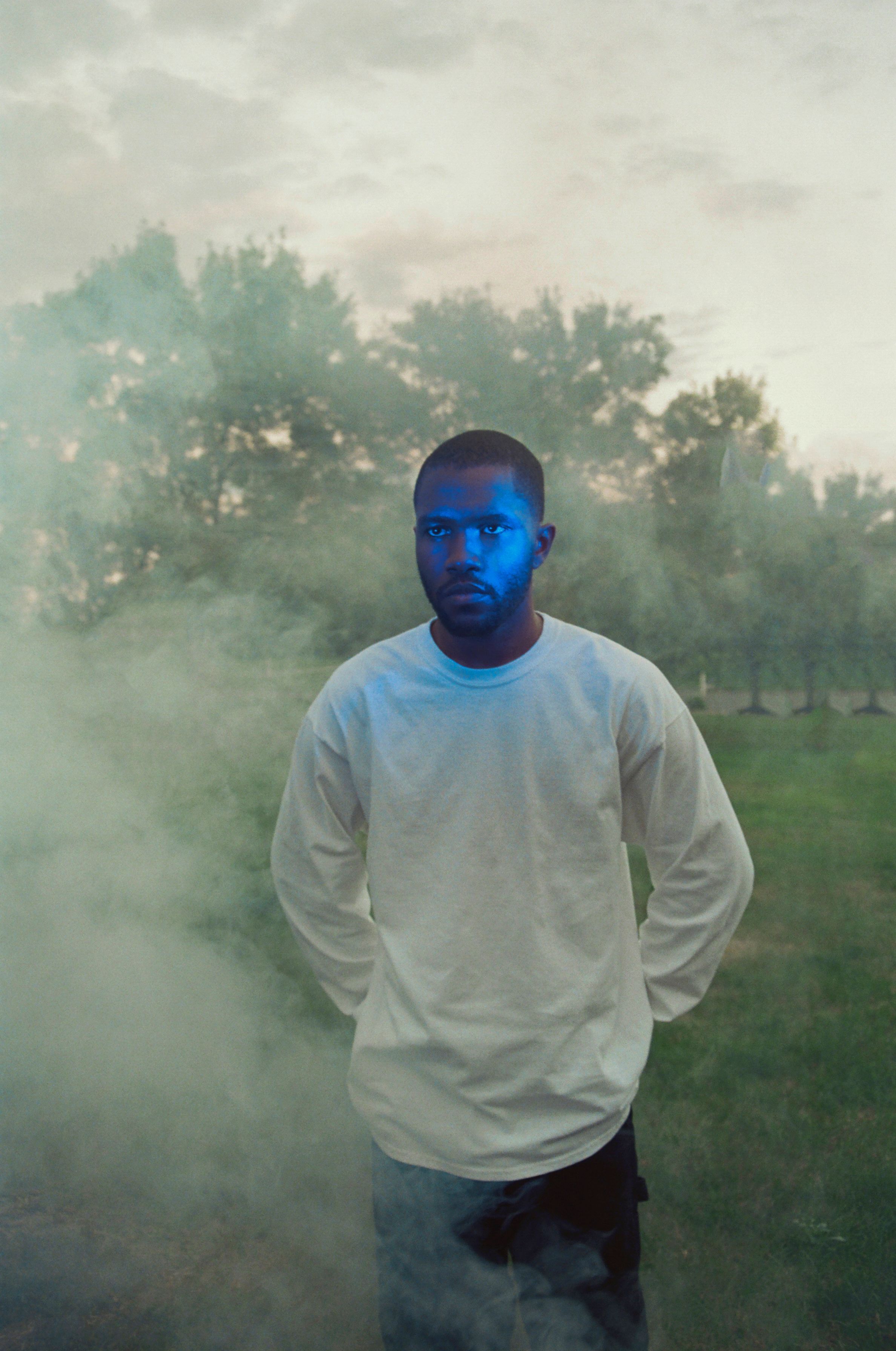
To really get Blonde, you need to slow down, tune in, and adjust your mind to its rhythms. I can remember when the album finally came into focus for me. After listening to the sophomore album and Endless for two weeks in places including my front room in New York, the Japanese garden in Portland, Oregon, and the nude beach in Barcelona, I finally became overwhelmed by it in Helsinki airport after spending a night in a coffin-like sleep pod. Clapping on my headphones, suddenly, the grandeur of “Nikes” revealed itself. Teeming with images of sex and drugs, mythology and death, “Nikes” is an extended critique of consumer culture with a climactic section where the music falls away, and Ocean sings what amounts to an artistic manifesto: “We’ll let you guys prophesy/We gon’ see the future first.”
The airport setting was apt. Ocean’s music occupies those liminal spaces where you are neither in one place, nor another. The cover of Boys Don’t Cry depicts him on a racetrack, bathed in pink light, adjusting a crash helmet that hides his face, but through which he seems to be staring right through the reader. He is a mystic visionary – half-machine, wholly unknowable – ready to step into his ride’s interior and zoom off, leaving nothing behind but myth and memories.
By whispering rather than shouting, Ocean draws his listeners closer.
Pop music always comes from interior spaces: the studio, the bedroom, the club. Ocean’s favorite space is the car, an obsession heralded by the picture of a 1988 BMW E30 M3 on the cover of his mixtape nostalgia, ULTRA. Boys Don’t Cry features page after page of eye-popping whips – Complex captured 25 images from Ocean’s old Instagram account, gorgeous images of cars ranging from a chrome Mercedes Benz to an orange Honda motorcycle. “Raf Simons told me it was cliché, my whole car obsession,” says Ocean in the magazine, “Maybe it links to a deep, subconscious straight boy fantasy.”
Yet cars mean more to Ocean than that. These hard, high-tech bodies cocoon him from the outside world. They are metaphors for his own introspection. In “Ivy,” memories of the rides his family had – a BMW X6, an Acura Legend – evoke a past that will never return. In “Futura Free,” the “stretch marks” left by his Bugatti signify sex, wealth, and escape. “How much of my life has happened inside a car? I wonder if the odds are that I’ll die in one,” he ponders in Boys Don’t Cry. More whimsically, in the sixth episode of Blonded RADIO, his occasional radio show for Beats 1, Ocean introduces LCD Soundsystem’s “American Dream” with a daydream of his own: “If I had a flying car, all I would listen to would be this song, like, the first day. Just, like mid-air …”
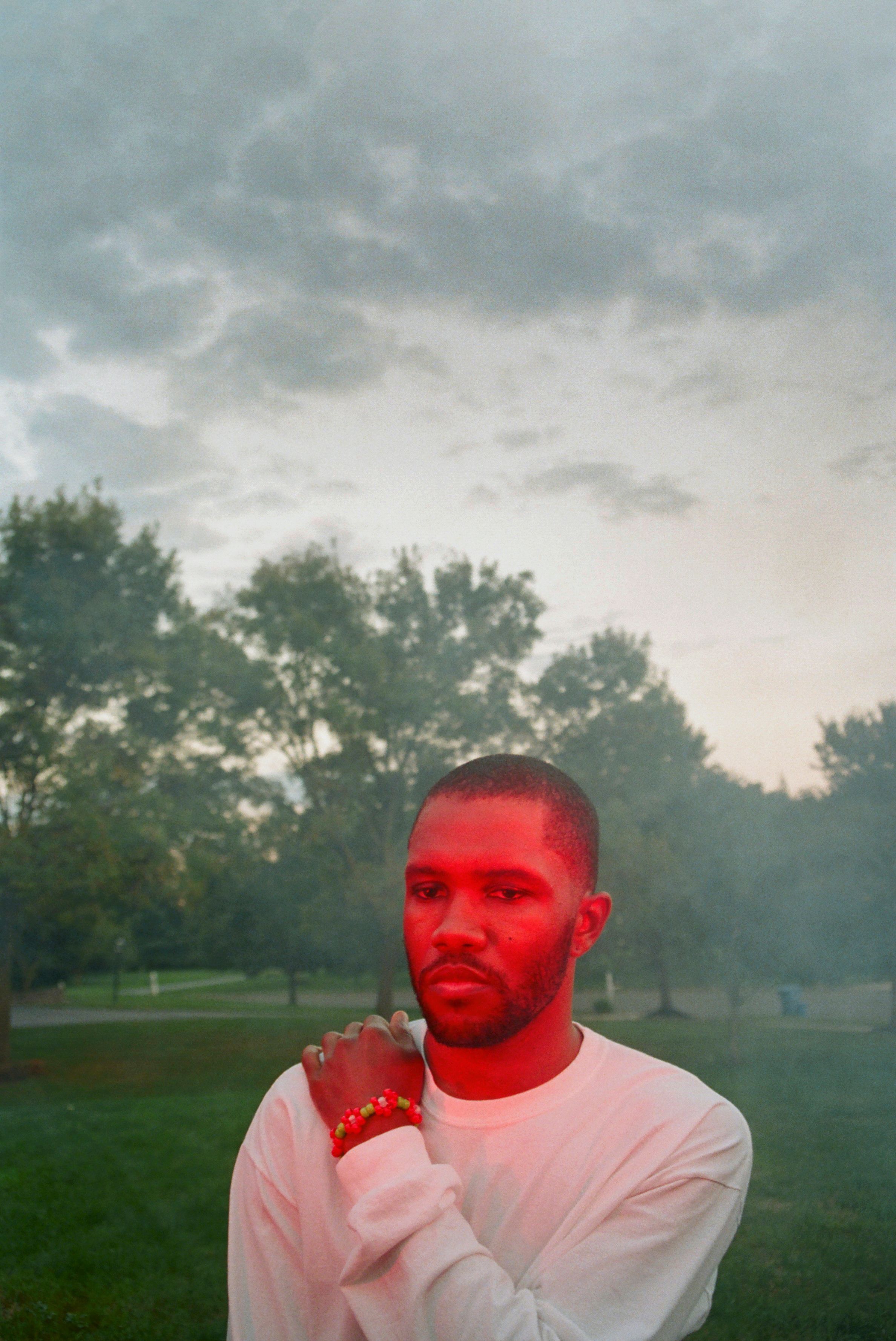
It is easy to imagine Ocean gliding above the fray, singing along to LCD Soundsystem. His refusal to line up with the rest of the pop music world – for instance, declining to put Blonde forward for a Grammy – means that his absence resonates more than his presence. He is a postmodern chasm of introspection at a time when pop stars feel the need to saturate their fans’ consciousness or risk being forgotten. By whispering rather than shouting, Ocean draws his listeners closer.
Ocean’s reticence in the public sphere is mirrored by the sparseness of his music. Once you let it in, Ocean’s thoughts and emotions are transmitted to you on such an intimate level, they seem to suffuse your central nervous system. Unobscured by the flotsam and jetsam of the gossip that usually trails behind other pop stars, we feel as though we are communicating directly with Ocean’s pure essence, from one consciousness to another.
Take the plangent guitar chords of “Nights,” which ring from the silence to parachute us straight into the mind of a person who is stressed, horny, and stoned (“Did you call me from a séance?”), as well as hard-pressed for time and money (“Drop the baby off at home before my night shift”). At the beginning of the post-Blonde cut “Lens,” a Fender Rhodes electric piano doodles gently before Ocean’s heavily autotuned vocals blare his thoughts through the nocturnal ambience, affirming gay love in a world that would prefer LGBT people to feel ashamed by it: “Spirits watch me, pants down/Can’t be ’barrassed of it/I feel their smiles on me.”
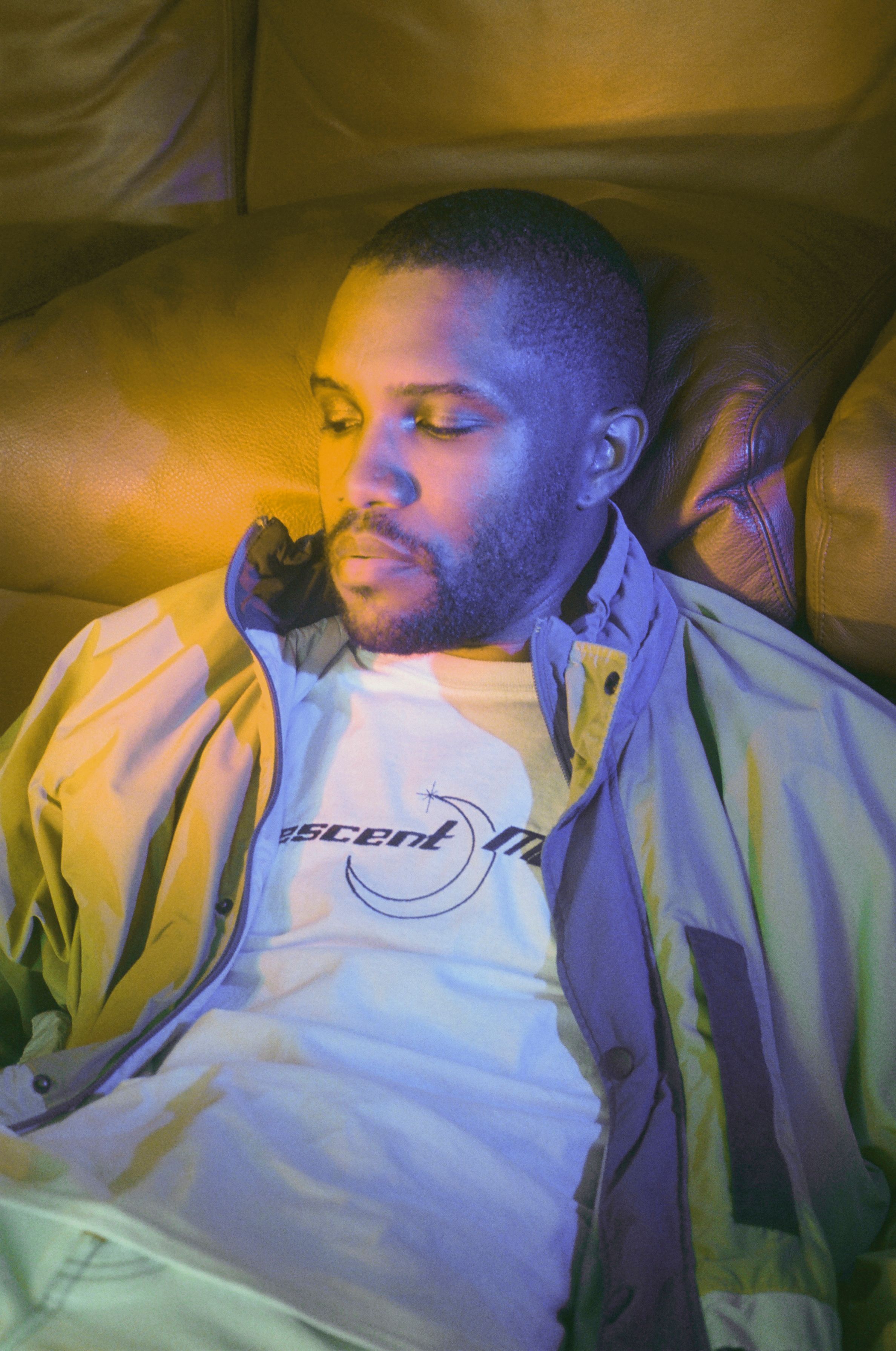
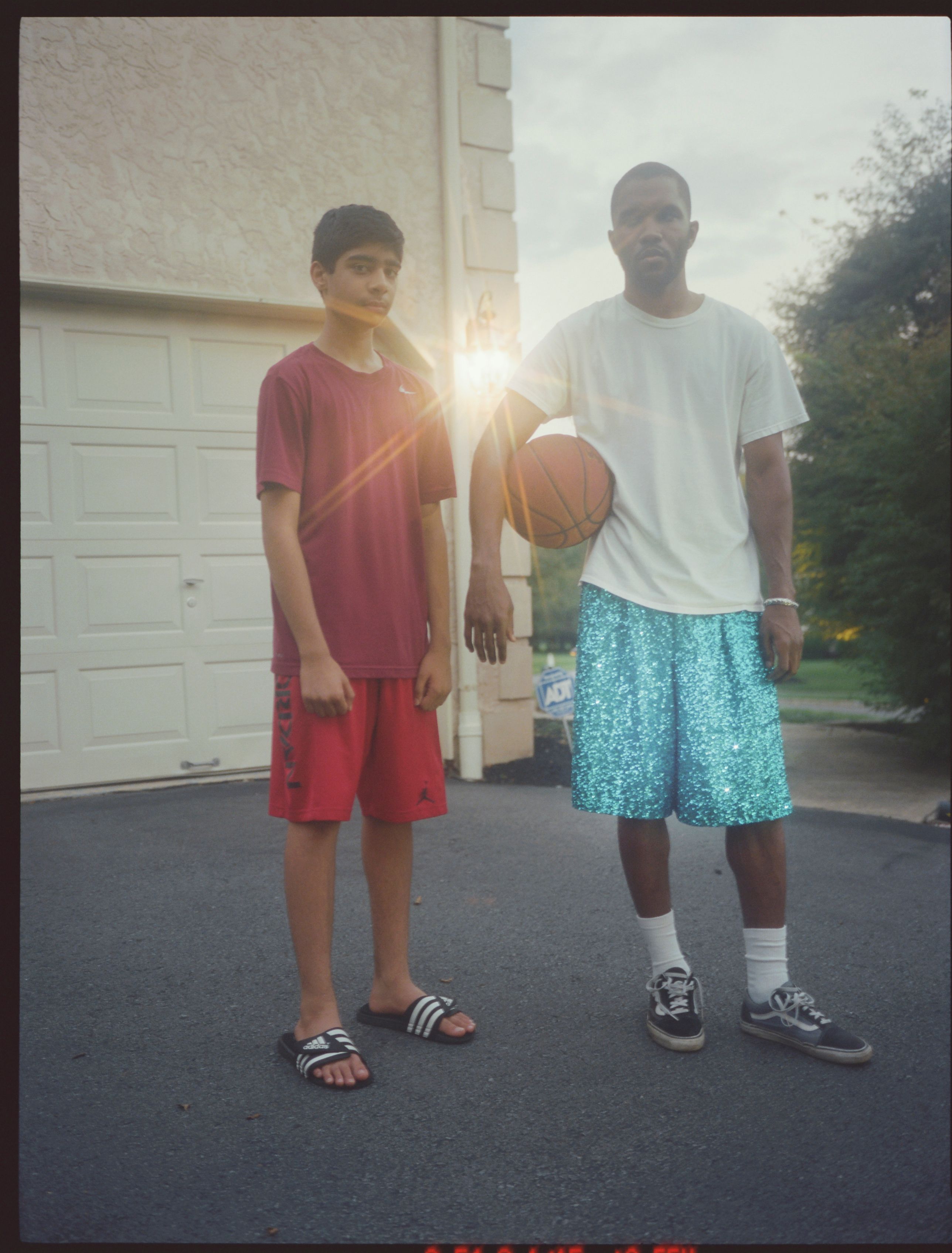
Like “Lens,” “Chanel” made its debut on Blonded and is as bare musically as it is emotionally. Rippling piano chords and crunching, trudging drums underscore Ocean’s most sexually explicit lyrics, which rise to the proud central statement: “I see both sides like Chanel/C on both sides like Chanel.” It is a punning affirmation of Ocean’s multifacetedness, his bisexuality, and his ability to deal with the legacy of music’s past while simultaneously facing the future – a feat only the greats have managed, like Ocean’s heroes OutKast, the Beatles, and Prince.
Other songs voyage still deeper and darker. “Siegfried” is Ocean’s anguished “fond farewell to a friend,” which turns to thoughts about the roads not taken (“Maybe I’m a fool/Maybe I should move/And settle, two kids and a swimming pool”). It then takes a metaphysical turn as Ocean watches his sleeping lover and contemplates the dream within a dream that will unveil “a glimmer of God.” In “Siegfried” – which may allude to the war poet Siegfried Sassoon, who was in love with Wilfred Owen, or the fearless warrior of Wagner’s Ring Cycle, or neither of these – the narrator admits that he cries, that he takes magic mushrooms, and that his heart has been broken.
It is the paradox of Ocean’s persona that he presents himself as being unknowable, while peeling his songs back to their emotional core, and thereby touching our own. We can assume the name Frank (he was born Christopher Edwin Breaux) may be Ocean’s way of affirming a commitment to the truth. Or perhaps, he just admires Ol’ Blue Eyes, whose “Bein’ Green” he played in the most recent episode of Blonded.
So who is Frank Ocean?
We know what kinds of films he likes, thanks to the list of his favorite 100 movies in Boys Don’t Cry – it includes Barry Lyndon (1975), Mulholland Drive (2001), The Discreet Charm of the Bourgeoisie (1972), Solaris (1975), and The Holy Mountain (1973). We know that he goes clubbing – he mentions a trip to Berghain in Boys Don’t Cry where he met his Blonded co-presenter Joe Thornalley, whose nom de disque is Vegyn.
We have seen a flash of his anger and pride when the organizers of the Grammy Awards said his refusal to put Blonde forward for nomination was that he had given a disappointing performance of “Forrest Gump” years before. “Use the old gramophone to actually listen bro, I’m one of the best alive,” responded Ocean on Tumblr, “And if you’re up for a discussion about the cultural bias and general nerve damage the show you produce suffers from, then I’m all for it.”
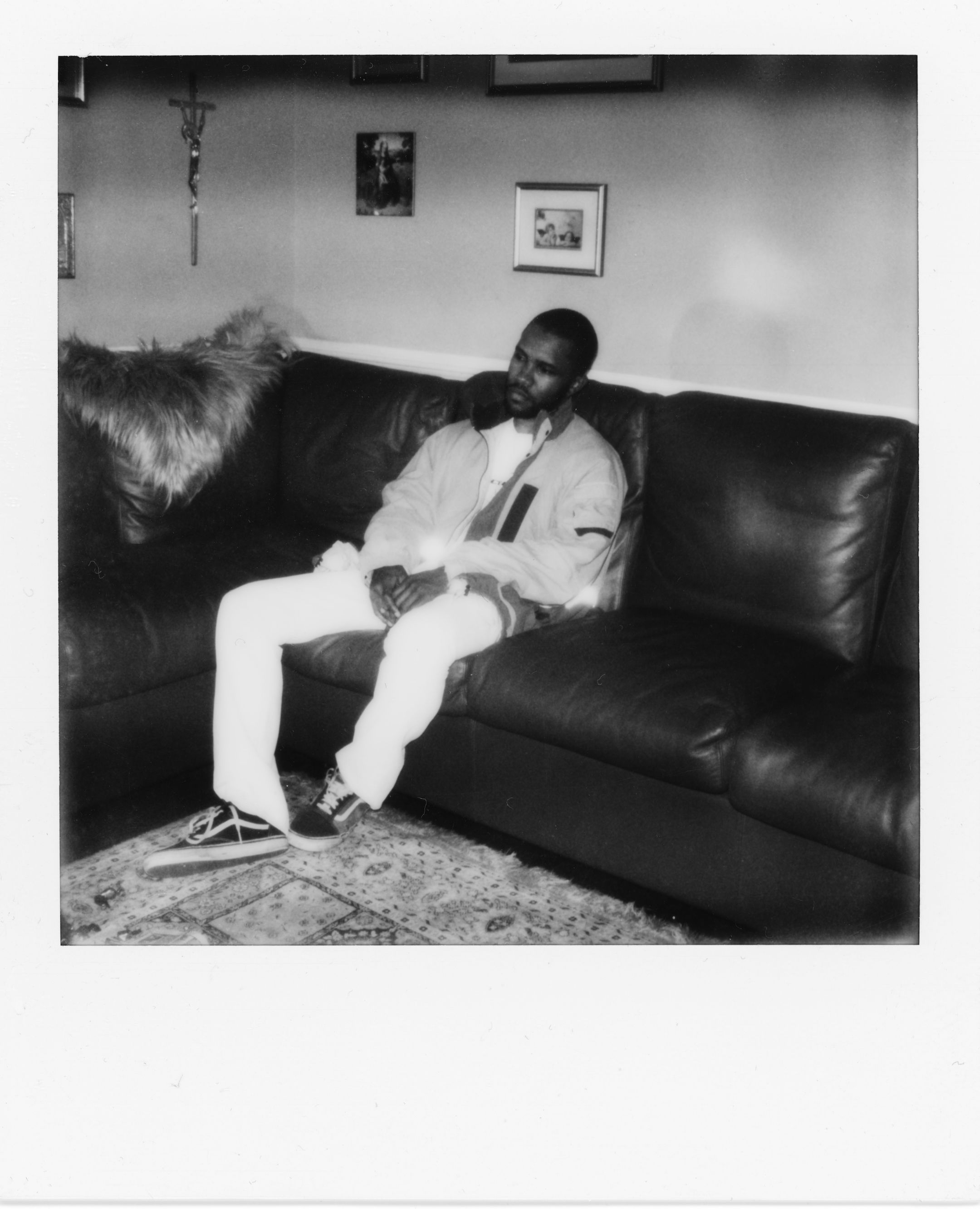
He may refuse to be ubiquitous, but that does not mean that Ocean lacks bravery. We saw that when he came out in the summer of 2012, just before the release of Channel Orange. Yet, that moment of self-revelation did not, of course, lead to Ocean divulging the specifics of his relationships outside his songs. Instead, this summer, he playfully serenaded Brad Pitt on stage at the FYF Fest in Los Angeles, singing “Close to You” while Pitt seemed to talk to him on his cell phone. The pair were filmed by Spike Jonze, a live feed projected onto two big screens. This queer superstar moment came about because Pitt had also fallen in love with Ocean through his songs, finding solace in Blonde after the end of his marriage. “I’ve been listening to a lot of Frank Ocean. I find this young man so special,” he told GQ Style, “Talk about getting to the raw truth. He’s painfully honest.”
Painfully honest, yet utterly discreet. Maybe beneath the helmet, there is just a normal guy who loves music, marijuana, and cars. Yet, when I put my headphones on again – and the opening chord of “(At Your Best) You Are Love” awakens something imprinted in my DNA – I know that Frank Ocean is also a sonic space cadet on a mission to pop’s outer limits. He is a voice in the cosmos expressing the joy and pain of love, from 2017 to eternity.
Credits
- Text: Alex Needham
- Photography: Petra Collins
- Fashion: Mel Ottenberg
- Set Design: Lauren Nikrooz
- Production: Frank Seidlitz
- Make-Up: Anoli for Pat McGrath Labs
- Photography Assistant: Amber Simiriglia
- Production Assistant: Olivier Simille
- Thank you to the: Travia family (Silvio, Rachele, Martina, and Max)
- Thanks also to Frank Ocean's personal stylist: Rita Zebdi
